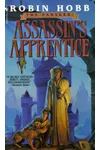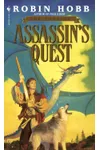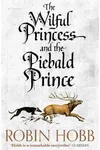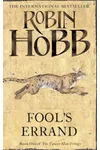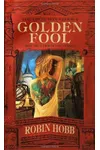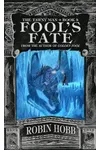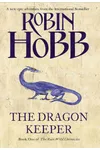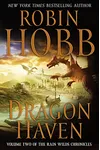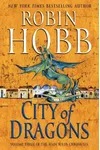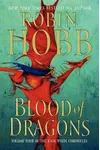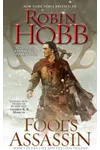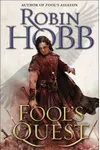Step into the enchanting world of the Farseer Trilogy, where royal intrigue, magical bonds, and a young hero’s journey weave a spellbinding tale! Written by Robin Hobb, this historical fantasy series whisks readers to the medieval-inspired Six Duchies, following FitzChivalry Farseer, a royal bastard with extraordinary gifts. With its rich world-building and heart-wrenching exploration of duty and identity, it’s a must-read for fantasy lovers.
Unlike epic fantasies with sprawling battles, the Farseer Trilogy dives deep into Fitz’s personal struggles, making every triumph and betrayal feel intimate. Ready to explore a world where magic and loyalty collide? Let’s journey into this beloved series!
How the Farseer Trilogy Began
Robin Hobb, a pen name for Margaret Astrid Lindholm Ogden, crafted the Farseer Trilogy in the mid-1990s, inspired by her love for character-driven storytelling. After writing under the name Megan Lindholm, Hobb adopted a new pseudonym to launch this ambitious series, blending gritty realism with fantastical elements. Her goal? To create a fantasy saga rooted in human emotions, set against a backdrop of political schemes and ancient magics.
The trilogy emerged during a golden era of fantasy, standing out for its introspective hero and intricate world. Hobb drew inspiration from medieval history and folklore, shaping the Six Duchies into a vivid, believable realm. Published by Bantam Spectra, the series quickly gained a devoted following.
The Heart of the Farseer Trilogy
The Farseer Trilogy comprises three books: Assassin’s Apprentice (1995), Royal Assassin (1996), and Assassin’s Quest (1997). In Assassin’s Apprentice, we meet young Fitz, a royal bastard trained as an assassin and gifted with the Skill (a telepathic magic) and the Wit (a bond with animals). As he navigates court politics and external threats, Fitz grapples with his place in the world. Royal Assassin deepens the intrigue, with Fitz facing betrayals and a looming war, while Assassin’s Quest follows his perilous journey to save the Six Duchies.
The series shines through its themes of duty, identity, and the cost of heroism. Hobb’s prose is lyrical yet grounded, painting a world where magic feels both wondrous and dangerous. The Six Duchies, with its coastal castles and clashing cultures, feels alive, while Fitz’s bond with his wolf, Nighteyes, adds emotional depth. Unlike flashy fantasies, the trilogy’s strength lies in its quiet moments—conversations, regrets, and hard-won loyalties.
Hobb’s character-driven approach sets the series apart. Fitz isn’t a chosen one; he’s flawed, relatable, and often caught in moral dilemmas. The trilogy’s pacing, slow but deliberate, rewards readers with emotional payoffs that linger long after the final page.
Why the Farseer Trilogy Resonates
The Farseer Trilogy has left a lasting mark on modern fantasy, praised for its emotional depth and complex characters. Fans adore its blend of high stakes and personal stakes, making it a cornerstone for readers seeking nuanced storytelling. The series inspired Hobb’s expansive Realm of the Elderlings saga, cementing her as a fantasy titan.
Its legacy endures through its influence on character-focused fantasy and its passionate fanbase, who celebrate Fitz’s journey on forums and conventions. For those craving a saga that balances heart and hardship, the Farseer Trilogy remains timeless.
- Publication Years: 1995–1997
- Number of Books: 3
- Setting: Six Duchies
- Notable Recognition: Beloved by fantasy readers, with a loyal cult following
Ready to lose yourself in a world of assassins, wolves, and royal secrets? Grab Assassin’s Apprentice and dive into the Farseer Trilogy’s unforgettable fantasy adventure!
